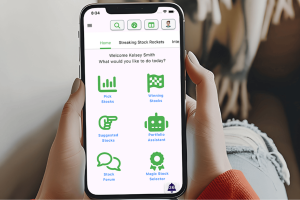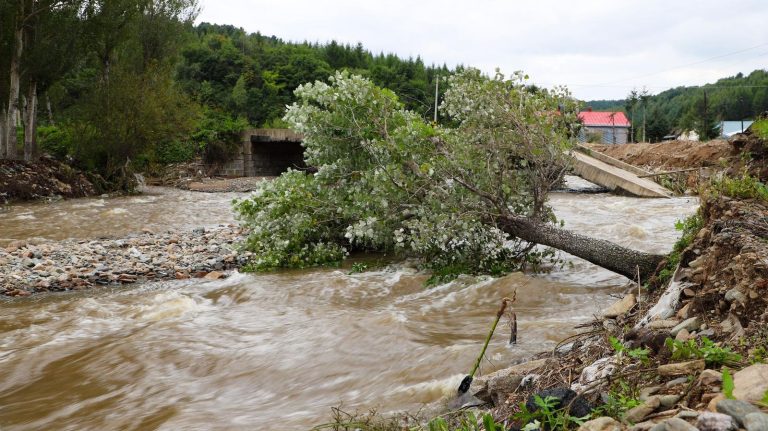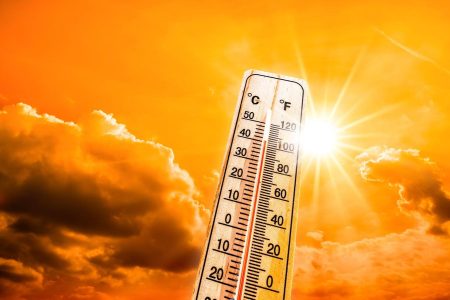This year’s hurricane season brought a stark reminder that nobody is safe from the traumatic impacts of severe weather. Hurricane Helene brought devastating once-in -1000 years flooding to part of Appalachia considered relatively safe from those effects. In fact, Asheville, NC, was called a “climate haven” before the hurricane. Hurricane Milton quickly followed, wreaking havoc across Florida with heavy rains and high winds, making 2024 only the sixth year since 1960 with at least two Category 5 hurricanes in a single season. Millions of people suffer from these natural disasters.
People in different population groups suffer more or less from the impact of a naturalized disaster. In general, those who have more wealth will fare better than those who are worse off financially. In the case of hurricanes, those with at least some money in financial reserves are more likely have the choice to relocate. They can pay for a hotel or other places to stay away from home. Or, if they cannot relocate, they can at least stock up on essentials like food, water and medicine and maybe even buy a generator to avoid going without electricity for a while. And, having wealth can make it possible to repair the damage brought by high winds and heavy rains without having to wait for insurance checks to arrive, allowing the more fortunate to return home and rebuild sooner. Those without sufficient wealth will more likely suffer from a lack of necessities early on and will have to wait much longer. In some cases, these families may never be able to return home.
The U.S. Census Bureau’s Household Pulse Survey has collected information on people who have been displaced by natural disasters since December 2022. These data show how long people have been displaced, the extent of the damage to their property and the impact of being displaced in terms of obtaining basic necessities. The Census data paint a grim picture as some groups are much more likely to suffer from the effects of natural disasters such as hurricanes and floods, and that many people suffer the hardships wrought by those disasters for extended periods of time.
Different population groups face varying chances of being displaced by a natural disaster, as Census data, collected from December 2022 to August 2024, show. About 1.4% of adults reported being displaced by a natural disaster in the prior 12 months. Black (2.3%) and Latino (1.8%) adults are much more likely than white (1.1%) adults to be displaced by a natural disaster. The chance of being displaced is especially high for those who identify neither as straight or as LGBTQ with a likelihood of being displaced of 3.1% and for disabled adults with a 2.7% likelihood.
In a lot of cases, those disasters are hurricanes and floods. Overall, hurricanes are the most common reason – with 31.5% — for people being displaced, followed by floods being the reason for displacement in 18.0% of cases. The remaining reasons include tornadoes, wildfires and a range of other causes such as extreme heat waves and blizzards.
The population groups that are most likely to be displaced by natural disasters, mainly hurricanes and floods, often also face the most dire consequences. The data show that 39% of the overall displaced population faced food shortages, 30% lacked water, 58% had no electricity, and 27% lived in unsanitary conditions. But, those consequences of being displaced by hurricanes or floods vary. For instance, more than half – 55% — of African-Americans said that they faced food shortages, compared to 32% of white adults. And, 60% of those who identified as other – neither straight nor LGBTQ – experienced food shortages, compared to 36% of straight adults. Moreover, 51% of disabled adults being displaced by a hurricane or flood experienced food shortages, compared to 33% of adults without disabilities. The same groups that face higher risks of being displaced by these natural disasters also then face worse effects.
Not only are immediate hardships unevenly distributed, but the same groups that suffer so much after a hurricane or flood are also much less likely to quickly return to their homes than others. In general, 17% of those displaced by a hurricane or flood did not return until at least 6 months or never returned. But, for African-Americans that likelihood was 21%, for those identifying as neither gay nor straight, there was a 23% likelihood and for disabled adults, it was 26%. Many of those who are displaced by a hurricane or flood will struggle for an extended time to return home, but that time can last much longer for those who are already economically vulnerable.
Data on the length of being displaced also highlight the importance of wealth. Assuming that homeownership correlates with wealth more generally, the length of displacement varies between renters and homeowners. Specifically, 15% of homeowners are displaced by a hurricane or flood for 6 months or longer, while 19% of renters are. Put differently, renters are more than 20% more likely to be out of their home for a long time than homeowners are. Wealth can play a crucial role in helping people recover from a natural disaster.
The data clearly show that natural disasters such as hurricanes and floods have very severe effects on people’s lives. Many people are driven from their homes by these disasters. This is especially true for population groups that often have fewer economic resources than other groups such as Black adults and disabled adults, among others. Those same groups then are also more likely to suffer immediate hardships such as food and water shortages and electrical outages. And, they are also less likely to quickly return to their homes. Put differently, the effects of a hurricane or flood compound over and over again for the most vulnerable adults.
The data make clear that natural disasters, especially hurricanes and flooding, have severe and potentially dire impacts on people’s lives. Many are driven from their homes for months if not longer, and in more severe cases, residents may never be able to return. The distribution of these impacts are deeply unequal, with the impacts being more prominent, longer lasting, and more severe for people of color, those with a disability, and people who identify neither as straight nor LGBTQ These disparities are shown clearly in the Census Bureau data, collected between December 2022 and August 2024, and will almost certainly manifest again in the displacement that households will experience in the wake of both Hurricane Helene and Hurricane Milton.
Read the full article here









